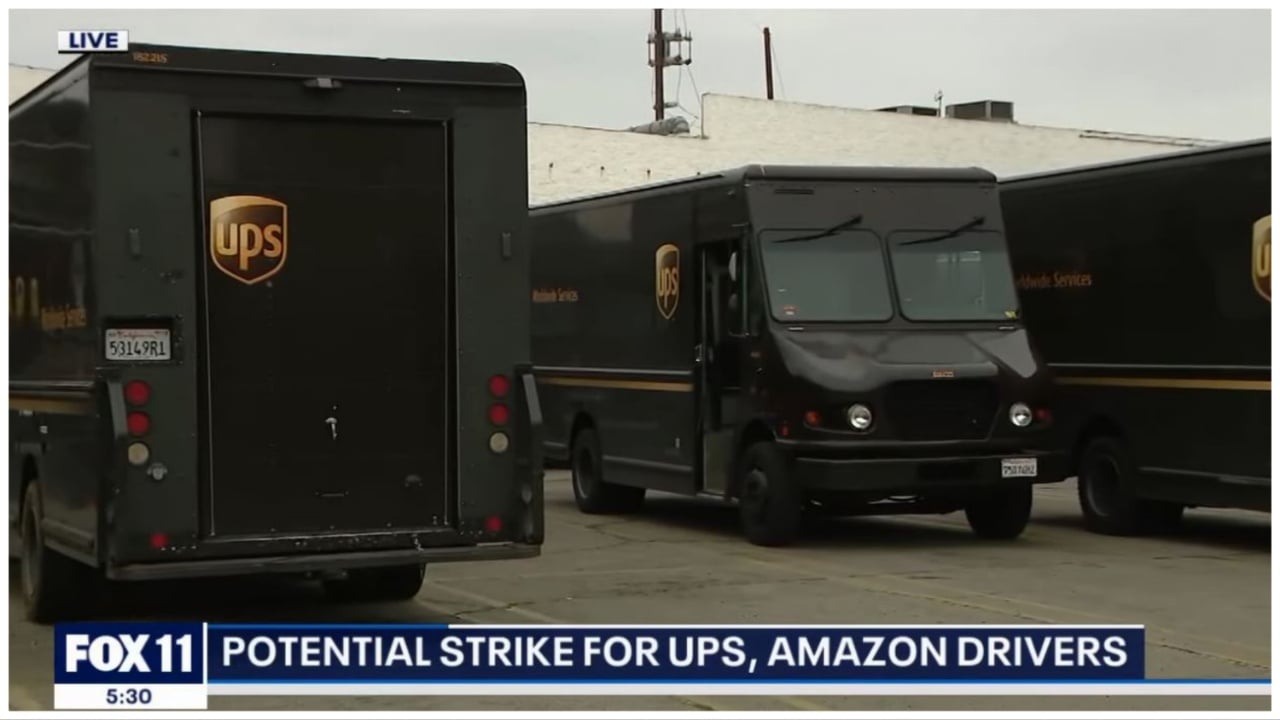
You may have to quit your Amazon Prime addiction cold turkey if United Parcel Service (UPS), one of the world’s biggest courier service companies, goes on strike. UPS workers have not yet formally announced a strike, but have proven they’re open to one. At least 340,000 UPS employees are represented by the labor union International Brotherhood of Teamsters, often referred to simply as Teamsters. These Teamsters-represented employees make up well over half of UPS’s total workforce. In the many years that Teamsters has been representing UPS, it has only ever called for a strike once.
Teamsters led UPS on a nationwide strike in 1997. Approximately 185,000 Teamsters UPS employees participated in the strike. The strike only lasted 16 days, but it was effective in shutting down operations and costing UPS a staggering $600 million. It was successful in securing Teamsters a satisfactory five-year contract with UPS that provided pay raises, more full-time positions, and addressed injury rates and pension plans. Now, the past 26 years of workforce peace may be shattered with another strike.
UPS strike explained
On June 16, UPS Teamsters voted overwhelmingly in favor of authorizing a strike. The vote means that Teamsters can call for a strike if UPS fails to deliver a satisfactory new contract by July 31. This majority vote shows that UPS workers are very serious about securing better working conditions through the new contract. UPS typically negotiates a new contract with Teamsters every five years. The most recent contract was the 2018 to 2023 National Master Agreement. Once the current agreement expires on July 31, Teamsters would be able to organize a strike if a new agreement isn’t reached before then.
Similar to 1997, two of the demands UPS workers have is pay raises and the addition of more full-time jobs. Pay is one of the major topics of contention, considering that UPS’ profits have surged in recent years due to more consumers’ online shopping since the pandemic. Meanwhile, the UPS workers also want more equitable pay. UPS has a system where senior employees are paid more than newer workers for doing the same job. Hence, Teamsters want UPS to close this pay gap between new and seasoned workers and believe the company has more than enough assets to instill this change. Teamsters are also looking for solutions to heavy workloads and driver safety.
Again, this doesn’t mean that UPS will go on strike. It’s simply a step in the negotiation process for now. Teamsters now have the advantage of being able to tell UPS that they will go on strike if a new contract isn’t reached. Hopefully, this will provide the push UPS needs to offer a satisfactory contract. Teamsters are actually already experiencing some victories, as UPS recently announced that all new vehicles will come with air conditioning, while older models will also be fitted with air conditioners and fans. It’s the first time that UPS drivers will have air conditioning and though it’s shocking this wasn’t incorporated sooner, it does address some of Teamsters’ top concerns about worker safety.
If UPS goes on strike, it will be the largest single-employer strike to occur in U.S. history. Additionally, its impact could be devastating. The number of workers represented by the union has doubled since 1997 and the number of packages that UPS delivers has been increasing by the millions in recent years. Only time will tell if Teamsters actually officially call for a strike. For now, though, they’ve warned UPS that they will strike if necessary, and that warning could be enough to move along negotiations.
(featured image: screencap/Fox 11 Los Angeles)
Have a tip we should know? [email protected]
